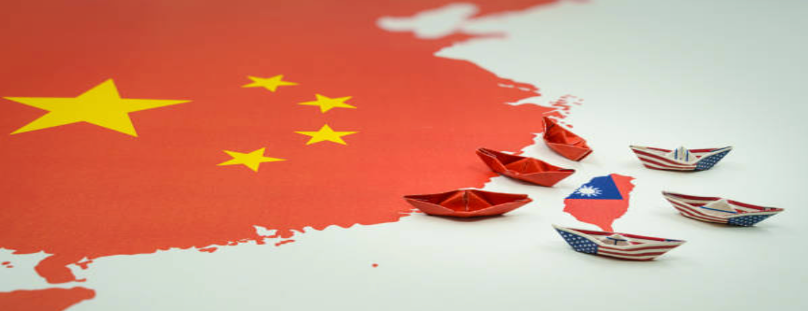At the 2022 G20 summit, Xi Jinping purportedly warned President Biden, “I will not be the president of China who loses Taiwan. If you force my hand, there will be war.” This statement followed House Speaker Nancy Pelosi’s visit to Taiwan, which incited strong military displays from China, including missile launches aimed at the island.
In April 2023, the US once again challenged China by hosting Taiwanese President Tsai Ing-Wen for a meeting with Pelosi’s successor, Kevin McCarthy. In response, China conducted military patrols around Taiwan, signaling escalating tensions in US-China relations. These actions should not serve as a pretext for the US to provoke China over Taiwan, and here’s why.
China’s warnings carry weight. The issue of Taiwan holds deep significance for China, rooted in the historical narrative of national pride and reunification. Despite ideological differences, both Beijing and Taipei assert belonging to the same country, making US recognition of Taiwan as a separate state perceived as Western interference by China. Analysts suggest that such perceived intervention would compel Chinese leaders to respond.
While some may doubt China’s willingness to risk war, its pragmatic leadership is not immune to such actions. However, the potential economic and geopolitical fallout, including global economic downturns and nuclear conflict, should deter any rational actor. Nevertheless, recent actions by China indicate a growing assertiveness in the region, warranting caution from the US.
Historically, the US maintained ambiguity in its Taiwan policy, recognizing the People’s Republic of China while pledging to defend Taiwan from military aggression. However, recent provocations, both overt and covert, jeopardize this delicate balance and escalate tensions unnecessarily.
Beyond the risk of war, the US’s actions undermine its global image and credibility. While positioning itself as a promoter of democracy and liberal order, its provocative stance erodes trust among allies and fuels global uncertainty. Instances like the weaponization of the USD post-Iran Deal exemplify a pattern of unilateral actions that strain international relations.
President Biden’s aspiration to restore America’s leadership role faces challenges, particularly in its approach to China. While maintaining pressure on China, the US must avoid actions that jeopardize regional stability, including Taiwan’s security. Amid rising tensions, the strategic importance of peace in Taiwan cannot be overstated.
Taiwan’s democratic values and economic prowess make it a crucial ally for the US in countering China’s influence. By supporting Taiwan, the US upholds democratic principles and bolsters a key player in the region. However, this support should not come at the expense of escalating tensions or risking conflict.
In the absence of advocates for improved US-China relations, Taiwan’s future hangs in the balance. The US must navigate its interests with prudence, ensuring that its actions contribute to regional stability rather than exacerbating tensions. Upholding morality and strategic foresight is essential for America’s role in the international community.







